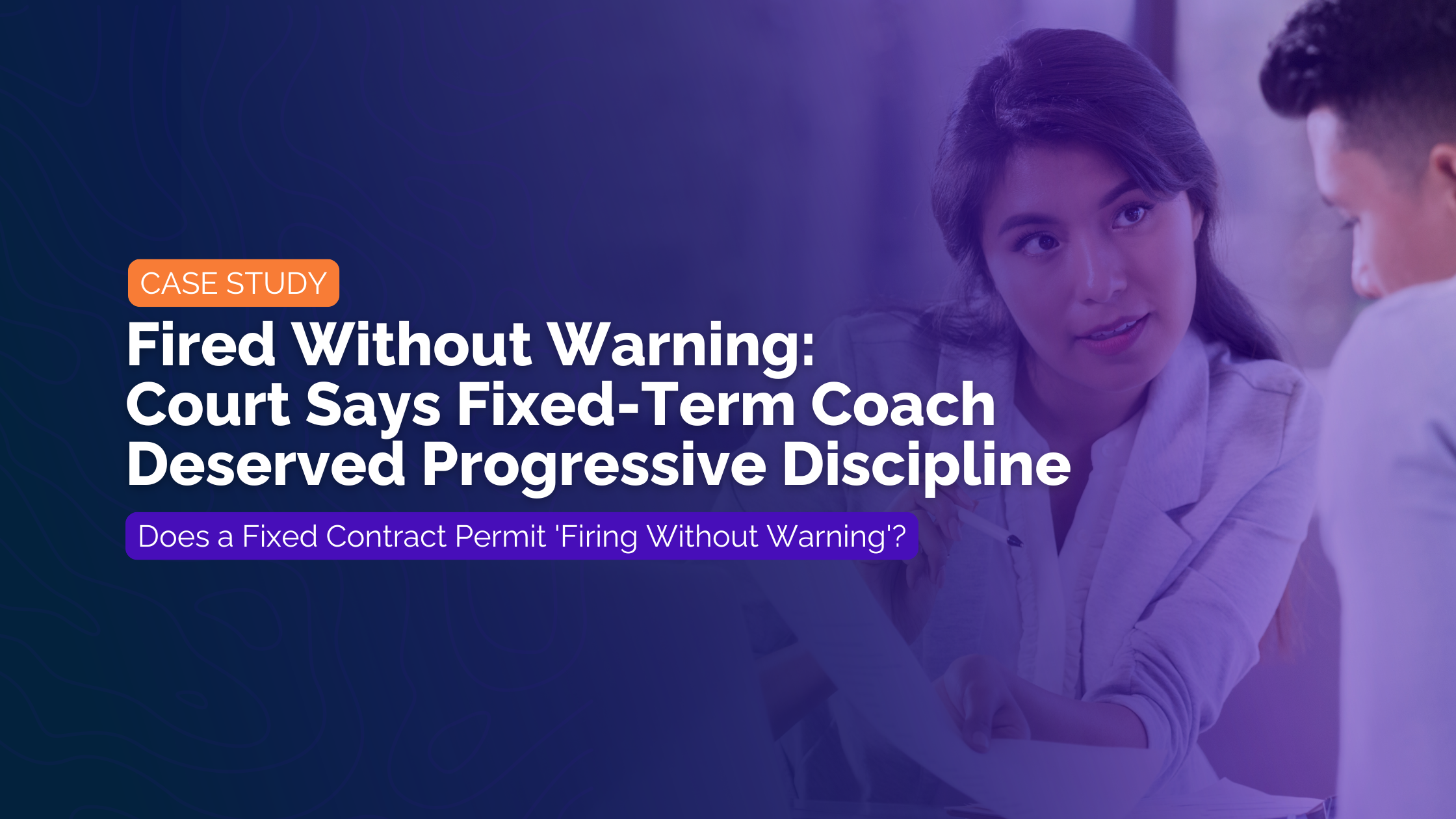Schick v. University of New Brunswick, 2025 NBKB 207 (CanLII)
Background
Richard Schick was hired in May 2021 as the head coach of the University of New Brunswick’s (UNB) Women’s Volleyball team on a three-year fixed-term contract. In October 2023, UNB terminated his employment for cause following multiple harassment complaints from team members and the team therapist.
The complaints alleged that Schick’s coaching style was aggressive, profane, and demeaning, negatively impacting the athletes’ well-being. UNB hired an external investigator, Dr. Kelly Van Buskirk, K.C., who substantiated 9 of 30 allegations, primarily related to the excessive use of profanity and aggressive conduct.
Despite acknowledging improvement in Schick’s behaviour and some mitigating factors, such as his self-reflection and efforts to adjust his style, UNB decided that continued employment was not possible and dismissed him without notice or pay.
Schick sued for wrongful dismissal, claiming the university failed to apply progressive discipline and seeking the balance of his contract wages, benefits, and damages.
Court’s Analysis
Justice Christie emphasized that the case was not about coaching style, but about whether UNB had cause to terminate without notice under employment law principles.
Key findings included:
- Some misconduct occurred, but not all allegations were proven.
- The investigation confirmed certain aggressive behaviours (e.g., excessive profanity, a “timeout” incident) that violated the university’s harassment policy.
- However, several complaints were unfounded, and Schick had shown awareness, remorse, and attempts to improve.
- UNB acted fairly in investigating, but failed to apply progressive discipline.
- While the university followed a fair process, retaining an independent investigator, meeting both parties, and considering the evidence, it did not give Schick a chance to correct his behaviour through warnings or other disciplinary measures.
- The court held that termination for cause is a last resort, appropriate only where misconduct is severe or repeated despite prior discipline.
- Fixed-term contracts require special handling.
- Because Schick’s employment was fixed for three years, early termination without cause entitled him to the balance of his contract.
- The court awarded $43,910.05 in salary, plus CPP and pension contributions, and costs, totaling $50,920.98.
- No aggravated damages were awarded, as UNB had acted reasonably and in good faith overall.
Key Legal Principles
- Progressive Discipline: Employers must provide employees with notice and opportunity to correct misconduct unless the behaviour is egregious enough to destroy the employment relationship.
- Proportionate Response: Even where harassment is found, termination may not be warranted if the misconduct is limited, improvement is evident, and lesser sanctions could correct behaviour.
- Fixed-Term Employment: Dismissal before the contract end date, without just cause, entitles the employee to the remaining term’s pay, not just reasonable notice.
- Investigation Fairness: Conducting a thorough, impartial investigation is essential, but procedural fairness alone does not justify termination if the disciplinary response is disproportionate.
Takeaways for Employers
- Don’t skip progressive discipline.
- Even when employee conduct raises serious concerns, consider issuing warnings, coaching plans, or suspensions before termination—unless the misconduct is severe (e.g., violence, theft, or egregious harassment).
- Distinguish style conflicts from policy violations.
- Behaviour that is abrasive or unpopular may still fall short of “cause.” Employers should assess whether the conduct truly breaches policy or their code of conduct and whether improvement is possible.
- Ensure clear behavioural expectations.
- If professionalism, communication, or language standards are important (as in coaching or leadership roles), ensure they’re explicitly documented in contracts, handbooks, and codes of conduct.
- Keep documentation consistent.
- UNB had annual evaluations and player surveys showing both concerns and improvements. However, it never documented formal warnings, which weakened its just-cause position.
- Handle complaints promptly and objectively.
- UNB’s independent investigation was a best practice. Employers should continue to separate investigation and discipline decisions to maintain fairness and transparency.
- Fixed-term contracts carry higher risk.
- Unlike indefinite contracts, early termination of a fixed-term employee (without cause) can require paying the entire remaining term—often far costlier than providing reasonable notice.
Final Word
The Schick decision reinforces that progressive discipline remains a cornerstone of just-cause terminations, even in cases involving sensitive workplace issues like harassment or coaching behaviour. Employers must balance their duty to protect staff and maintain safe environments with their obligation to treat accused employees fairly and proportionately.
Citation: 2025 NBKB 207 (CanLII) | Schick v University of New Brunswick | CanLII

